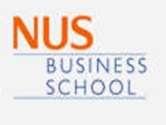
Case study: Serving up success
By NUS Business SchoolIn the third in our series of SME leadership case studies, Think Business looks at the Suki Group of Japanese restaurants and its strategy for success in the highly competitive Singaporean food market.
With more than 30 outlets across Singapore, 1,300 full- and part-time staff and an annual turnover in excess of S$60 million, the Suki group of restaurants has made big strides since opening its first restaurant a decade ago.
The group specialises in Japanese food and operates across several brands, with the guiding strategy across the business being to provide quality food at affordable prices.
Today the group averages turnover of around 10,000 customers each weekday across its outlets, and serving up to 20,000 daily on peak weekends.
Starting with its first kaiten (conveyor belt) sushi restaurant in 2002, Suki has expanded into a range of different Japanese food options and restaurant concepts.
Kelvin Ong, Suki's Chief Operating Officer, says the diversification came relatively early, as the group looked to target the lower rental costs in residential areas away from Singapore's CBD. New brands were launched including the Ishi Mura Japanese food street, Suki Ramen chain and the more recent Momiji buffet restaurant.
"Each of the restaurants that we have opened up has its unique selling point," says Ong.
"For instance for the buffet restaurant you may come once a week or two weeks. But the kaiten sushi is more like casual dining, so when you came in you spend only $13-$15 per person, which is very affordable. And you get really good quality."
Singapore's food market is highly competitive, Ong says, so a key focus of the company has been on attaining cost leadership by maintaining a highly efficient supply chain, from initial procurement through the firm's centralised kitchen, and on to the actual restaurant outlets themselves.
Suki has opted to handle the sourcing of the hundreds of products and ingredients its restaurants require itself, buying direct from factories overseas and cutting out the middleman's mark-up averaging 25-30 per cent.
Meanwhile by centralising much of its food preparation and dish cleaning in a state of the art kitchen facility, it has also been able to reduce costs, keeping prices low for consumers.
The firm has even invested in an automated sushi rice cooking machine, churning out a tonne of rice a day, requiring two workers rather than the previous five to serve the daily needs of all its restaurants.
The machine also uses 35 per cent less oil, says Ong, delivering a spin-off in the form of a healthier product for the customer.
Born in Malaysia, Ong has a long history in the F&B business, working in kitchens from an early age. With that hands-on experience, he says, he has been able to understand and improve kitchen workflow and efficiency as he leads Suki's growth.
He also travels extensively, particularly in Japan and Taiwan from where he says he has adopted various business practices and design ideas.
To encourage staff development and input into the business, Ong has also sent groups of employees to Taiwan to visit some of the island's most successful restaurant chains and learn from their experience.
"Because Singapore is a small country in order for us to get more knowledge, we have to travel, especially to well-developed countries to see how people operate and pick-up best practices for use in Singapore," says Ong.
As a service business, Ong says maximising labour productivity is essential for the Suki group's future with a focus on developing staff as the firm's key resource.
Other recent developments include the introduction of an incentive scheme for key outlet personnel, focussed on hitting targets and keeping costs down through effective restaurant management. Part of the profits are then shared with the staff who in turn get an opportunity to learn and develop key career skills.
With most staff in the F&B industry in Singapore not highly educated, Ong says he encourages staff to constantly increase their skill set and value to move ahead with their careers.
He frequently points to his own experience, reminding staff that when he first arrived in Singapore he could not speak English.
With little in the way of advertising spend, Suki relies for much of its marketing on word of mouth, based around its core focus on delivering high quality food at affordable prices across a range of branded outlets.
Ong says many customers get to know the firm's restaurants through their friends as the group has been quite successful in creating different dining experiences for its four brands in the group.
But he says the industry remains very competitive as there are many players coming into the market bringing new challenges ahead.
"We have to make sure we do more to let the customer know we have actually put in a lot of effort in terms of sourcing to put quality products on the table for them to enjoy," Ong says.
Looking to the future Ong says it may be difficult for the Suki group to grow remaining focused on the restaurant-type, family customer oriented business alone.
So he says the firm is now looking at expanding into home delivery and taking over the F&B operations of small, medium size hotels to grow its business.
There are also plans to go international in the years ahead, but taking a different strategy from the multi-brand approach seen in Singapore, perhaps focussing on the fast-food sector and playing up the firm's Singaporean roots.
As the Singapore brand is highly regarded overseas from a safety and quality perspective, Ong says, the Suki group stand a good chance in countries like China, later expanding to other regional markets such as Malaysia, Vietnam and Thailand.
This article was first published on NUS Business School's Think Business portal (thinkbusiness.nus.edu).
Author: Think Business Staff
READ MORE FROM NUS:
- Frugal innovation: From East to West and back again
- Asian headhunters on landing that top job
- Building 21st century healthcare
Source: https://thinkbusiness.nus.edu/articles/item/111-case-study-serving-up-success

























 Advertise
Advertise






